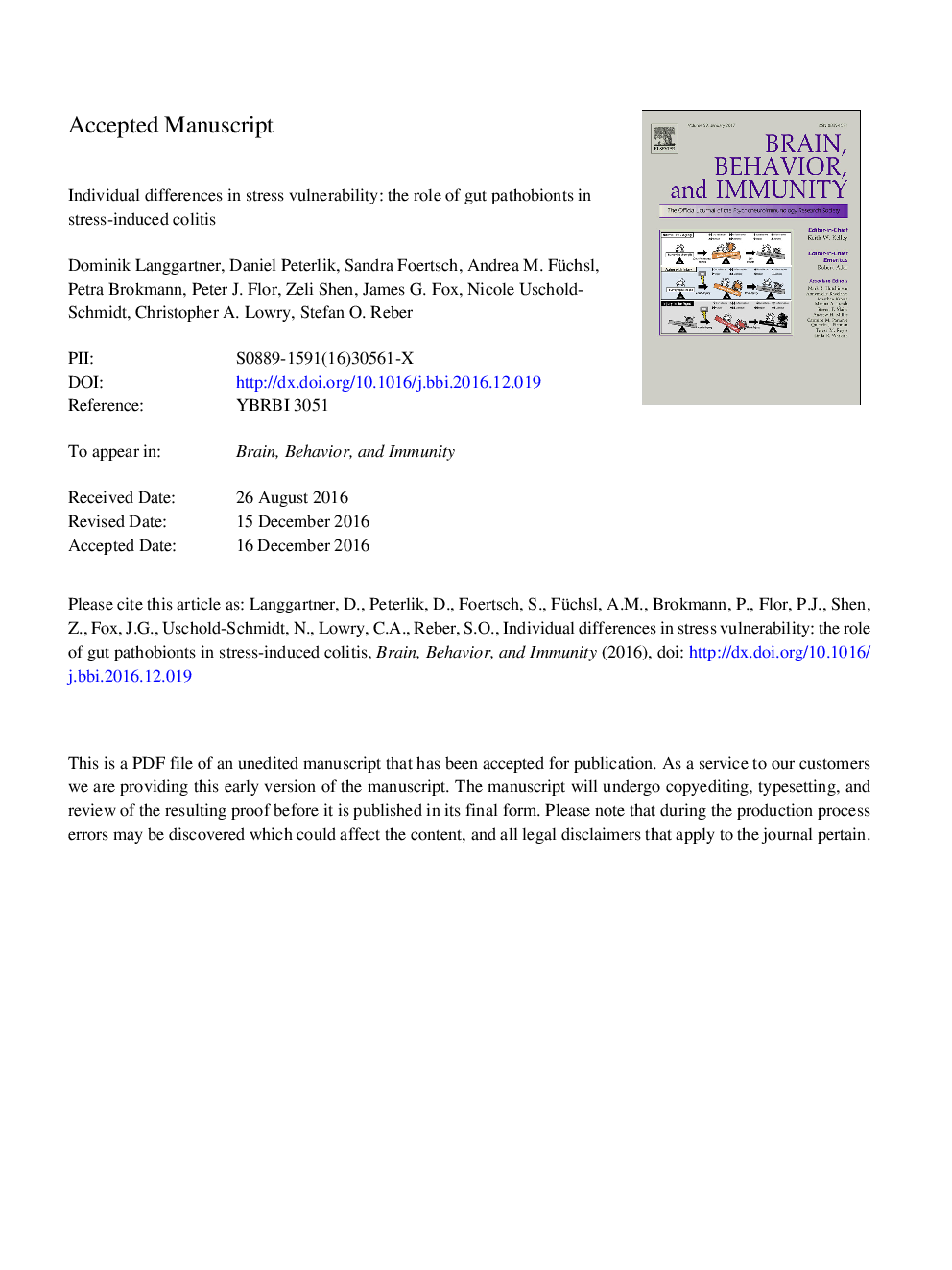ترجمه فارسی عنوان مقاله
تفاوت های فردی در آسیب پذیری استرس: نقش پوسیدگی های روده در کولیت ناشی از استرس
عنوان انگلیسی
Individual differences in stress vulnerability: The role of gut pathobionts in stress-induced colitis
| کد مقاله | سال انتشار | تعداد صفحات مقاله انگلیسی |
|---|---|---|
| 127860 | 2017 | 37 صفحه PDF |
منبع

Publisher : Elsevier - Science Direct (الزویر - ساینس دایرکت)
Journal : Brain, Behavior, and Immunity, Volume 64, August 2017, Pages 23-32

